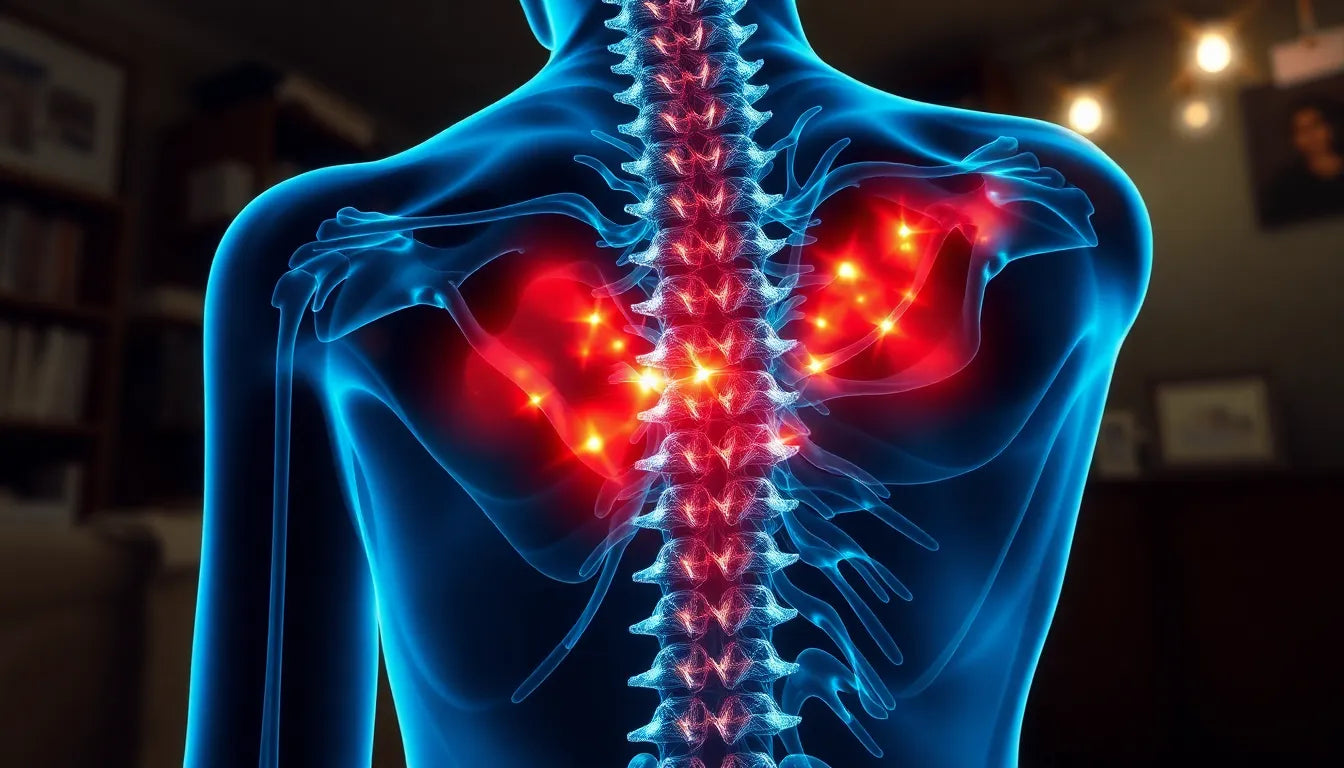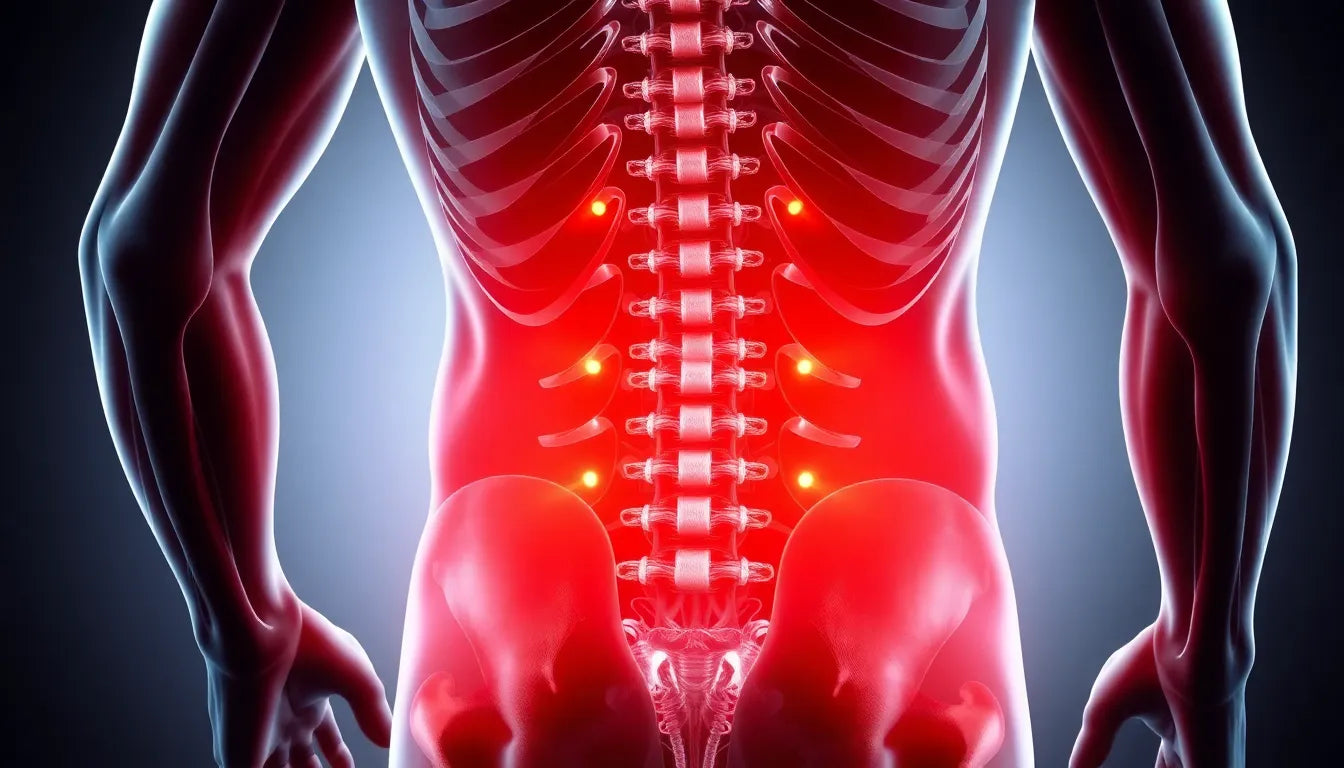Understanding the complexities of a herniated disc and its potential classification as a permanent disability is crucial for anyone experiencing severe back pain. A herniated disc, often referred to as a slipped or ruptured disc, occurs when the soft center of a spinal disc pushes through a crack in the tougher exterior casing. This condition can significantly affect the spine's function, leading to pain, numbness, or weakness in an arm or leg. The impact on mobility and daily activities can be substantial, raising questions about whether it might qualify as a permanent disability.
understanding herniated discs and disability
When we talk about disability in the context of a herniated disc, we refer to the severe, long-term symptoms that can arise from this condition. These symptoms might include chronic pain, nerve root compromise, and muscle atrophy, which can severely limit a person's ability to perform everyday tasks. The notion of disability here isn't just about physical limitations; it also encompasses the legal definition, which can determine eligibility for benefits and support.
There's a common misconception that all herniated discs lead to permanent disability. In reality, many cases resolve with appropriate treatment, and only a fraction of individuals experience symptoms severe enough to qualify as a permanent disability. Understanding the medical and legal perspectives is essential for anyone navigating this complex issue. Misunderstandings can lead to either unnecessary worry or, conversely, a lack of preparedness for the challenges ahead.
the dual nature of the issue
The question of whether a herniated disc constitutes a permanent disability involves both medical symptoms and legal criteria. Medically, the severity of symptoms such as nerve root compression and chronic pain can profoundly affect an individual's quality of life. Legally, disability assessments consider these medical evaluations to determine eligibility for benefits.
The main question that arises is: Can a herniated disc be considered a permanent disability, and under what circumstances? The answer isn't straightforward. It requires a detailed understanding of both the medical implications of the condition and the legal frameworks that govern disability claims. This dual focus ensures that individuals receive the support they need, whether through medical treatment or legal avenues, to manage their condition effectively.
medical perspective on herniated discs
A herniated disc can manifest in a variety of symptoms, some of which may lead to a permanent disability if not properly managed. One of the most significant medical concerns is nerve root compromise. This occurs when the herniated disc presses on the nerve roots, potentially causing severe pain, numbness, or weakness in the areas of the body served by those nerves. Chronic pain is another common symptom, which can lead to muscle atrophy due to disuse and a loss of motion, further exacerbating the condition.
In severe cases, individuals may experience widespread, function-limiting pain that makes even simple movements excruciating. This kind of debilitating pain can severely limit one's ability to perform daily activities and maintain employment, leading to considerations of permanent disability. Understanding these medical aspects is crucial for both patients and healthcare providers when assessing the potential for long-term disability due to a herniated disc.
legal criteria for disability assessment
social security administration (SSA) guidelines
The Social Security Administration (SSA) has specific criteria for evaluating disability claims related to herniated discs. To qualify, there must be evidence of nerve root compression, which can be demonstrated through medical imaging and clinical tests. Additionally, claimants must show documented sensory or reflex loss and limited spinal or leg motion. A positive straight-leg raise test is often used to support these claims. Comprehensive medical documentation is essential to substantiate the severity and persistence of symptoms, as it plays a pivotal role in the SSA's decision-making process.
workers' compensation and VA ratings
Workers' compensation systems and the Veterans Administration (VA) have their own methods for assessing herniated disc claims. Workers' compensation typically evaluates the extent of "whole person impairment," assigning ratings based on the severity of the injury and its impact on overall function. These ratings can range from mild to significant, with severe cases potentially receiving a 25-30% whole person impairment rating.
Similarly, the VA assigns disability ratings based on the frequency and severity of incapacitating episodes. These ratings can vary from 10% to 60% or higher, depending on how much the herniated disc affects the veteran's ability to function. Both systems emphasize the importance of detailed medical records and assessments to accurately determine the level of disability.
case studies and examples
To illustrate how herniated discs are evaluated for disability benefits, consider the case of an individual who has experienced chronic pain and muscle weakness for over a year, despite undergoing various treatments. Medical documentation reveals nerve root compression and sensory loss, meeting the SSA's criteria for a disability claim. In this scenario, the individual might be eligible for disability benefits due to the documented severity and persistence of symptoms.
Another example involves a veteran who suffers from incapacitating episodes several times a year, limiting their ability to perform daily activities. The VA might assign a higher disability rating, reflecting the significant impact on the veteran's quality of life. These examples underscore the importance of thorough medical evaluations and documentation in navigating the complex intersection of medical and legal criteria for disability claims.
Insights from medical professionals and legal experts highlight the necessity of understanding both aspects to effectively pursue a disability claim. Dr. Jane Smith, a neurologist, emphasizes that "accurate and comprehensive medical records are crucial for substantiating the severity of a herniated disc and its impact on daily function." Legal advisor John Doe adds, "Navigating the disability claims process requires both medical evidence and a clear understanding of the legal criteria, making expert guidance invaluable."
navigating the legal and medical intersection
Understanding both the medical and legal dimensions of a herniated disc is critical for anyone pursuing a disability claim. The intricate nature of these cases often requires the combined expertise of medical professionals and legal advisors. Medical experts provide the necessary documentation and assessments that form the backbone of a disability claim, while legal advisors help interpret these findings within the framework of disability law.
For individuals seeking to establish a herniated disc as a permanent disability, it is essential to present a comprehensive case that includes detailed medical records and a clear understanding of the legal criteria. Collaborating with professionals who specialize in these areas can significantly enhance the chances of a successful claim. By aligning medical evidence with legal requirements, claimants can effectively demonstrate the extent of their disability and the impact on their ability to work and perform daily activities.
practical advice and resources
Filing for disability due to a herniated disc can be a daunting process, but there are practical steps that can facilitate the journey. First and foremost, maintaining thorough and organized medical records is crucial. These documents should include all relevant medical imaging, test results, and treatment histories that support the claim of disability.
Seeking legal advice early in the process is also advisable. A legal professional can provide guidance on the specific criteria set by the Social Security Administration (SSA), the Veterans Administration (VA), or workers' compensation boards. Understanding these criteria is key to preparing a strong case. Additionally, claimants should be prepared for a potentially lengthy process, as disability determinations can take several months and may require multiple evaluations.
Finally, individuals should explore all available resources and support systems. Many organizations offer assistance and information for those navigating the disability claims process. These resources can provide valuable insights and support, helping claimants to effectively manage their condition and pursue the benefits they need.
frequently asked questions
What qualifies a herniated disc as a permanent disability?
A herniated disc may be considered a permanent disability if it results in severe, persistent symptoms that significantly impact daily living and workability. This includes chronic pain, nerve root compromise, and muscle atrophy that do not respond to treatment.
Can I work with a herniated disc?
Many individuals with a herniated disc can continue to work, depending on the severity of their symptoms and the nature of their job. It is important to consult with healthcare professionals to determine the best course of action based on individual circumstances.
What documentation is needed for a disability claim?
Comprehensive medical records are essential for a disability claim. This includes evidence of symptoms, medical imaging, test results, and a history of treatments. Detailed documentation supports the claim of disability and helps meet the criteria set by relevant agencies.
How long does the disability determination process take?
The timeline for a disability determination can vary, but it typically involves multiple evaluations and can take several months. Patience and persistence are important, as the process may require additional documentation and follow-ups.
Are there treatments that can prevent a herniated disc from becoming a permanent disability?
Yes, many non-surgical treatments can alleviate symptoms and prevent a herniated disc from becoming a permanent disability. Physical therapy, medication, and lifestyle modifications can be effective, but severe cases may still require surgical intervention.
conclusion
Determining whether a herniated disc qualifies as a permanent disability involves navigating complex medical and legal criteria. Understanding both perspectives is crucial for successfully managing a claim. By seeking expert advice and maintaining thorough documentation, individuals can effectively advocate for their needs and secure the benefits necessary to manage their condition. The journey may be challenging, but with the right support and resources, it is possible to navigate these complexities and achieve a favorable outcome.
Sources
- SRGS Law. "Herniated Disc and Permanent Disability."
- Dr. Kevin Pauza. "Understanding Herniated Disc Disability Criteria."
- Social Security Administration. "Disability Evaluation Under Social Security: Musculoskeletal System."
- Hill & Ponton. "VA Disability Ratings for Herniated Discs."
- Discseel. "Herniated Disc Disability Eligibility and Criteria."
- Jones Legal. "Workers' Compensation and Herniated Disc Ratings."



